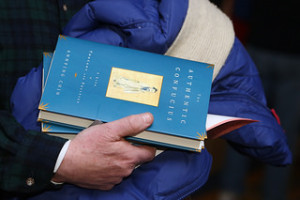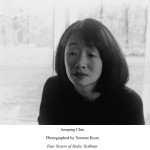Lecture Date: February 19, 2015

Confucius still matters in today’s China. China’s president Xi Jinping said as much on a trip to Confucius’ hometown in November of 2014, and he went further in his statement by placing Marxism and Confucianism side by side in a symbiotic relationship to suggest that this relationship could help China develop the kind of socialism “that is able to reflect the wishes of the Chinese people and adapt to China’s needs in her future.” Did Xi know what he was talking about? Does he intend to use ideas from the Confucian tradition selectively to support his authoritarian rule? Did he know who was Confucius? But how does one know Confucius, who lived more than 2500 years ago? The most reliable source on Confucius’ life and thought is the Analects, a book compiled by his disciples and their disciples, of the conversations Confucius had with his contemporaries and his observations about men of the past and about himself. The historical Confucius can be found in these records, and his teachings, which speak about human concerns, are inseparable from him. Without him, they risk the possibility of being misappropriated. For this reason, good scholars throughout the centuries work to preserve the integrity of the Analects in order to keep Confucius and his teachings alive.
Speaker: Annping Chin

Annping Chin was born in Taiwan in 1950, to a mainland Chinese family that had moved there in 1948. She came with her family to Richmond, Virginia in 1962. She studied mathematics at Michigan State University and received her Ph.D. in Chinese Thought from Columbia University. She has written four books: Children of China: Voices from Recent Years (Knopf, 1989), based on interviews with Chinese children living in the People’s Republic of China; Tai Chen on Mencius (Yale University Press, 1990), a study of eighteenth century Chinese intellectual history; Four Sisters of Hofei (Scribner, 2002), a history of China’s last century through the lives of four highly educated and accomplished women; and The Authentic Confucius: A Life of Thought and Politics (Scribner, 2007). She has also co-authored, with Jonathan Spence, Chinese Century: A Photographic History of the Last Hundred Years (Random House, 1996). Her translation of Confucius’ Analects with commentaries for Penguin Classics was published in September of 2014, and she is currently working on a book, The Life of the Analects, with Princeton University Press. Most recently, she has also been studying the excavated texts from the Warring States period (481-221 B.C.) and the diary of her grandfather, the historian Jin Yüfu; she has published several essays on both subjects. Her fields of research include Confucianism, Taoism, and the Chinese intellectual tradition. She was on the faculty at Wesleyan University and is currently teaching in the History Department at Yale University.